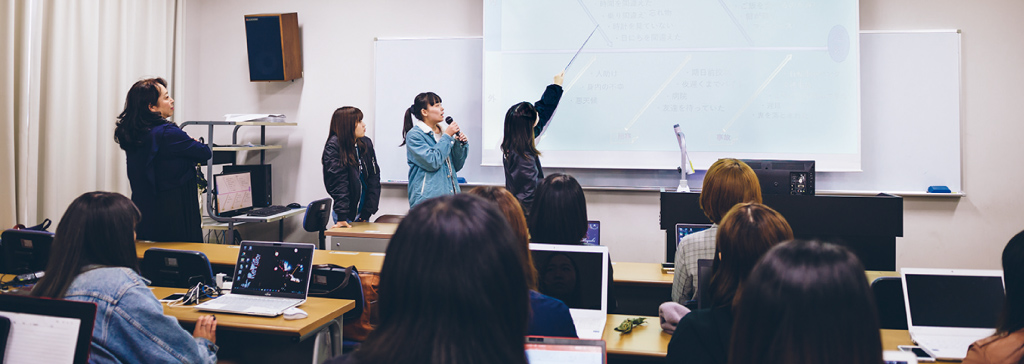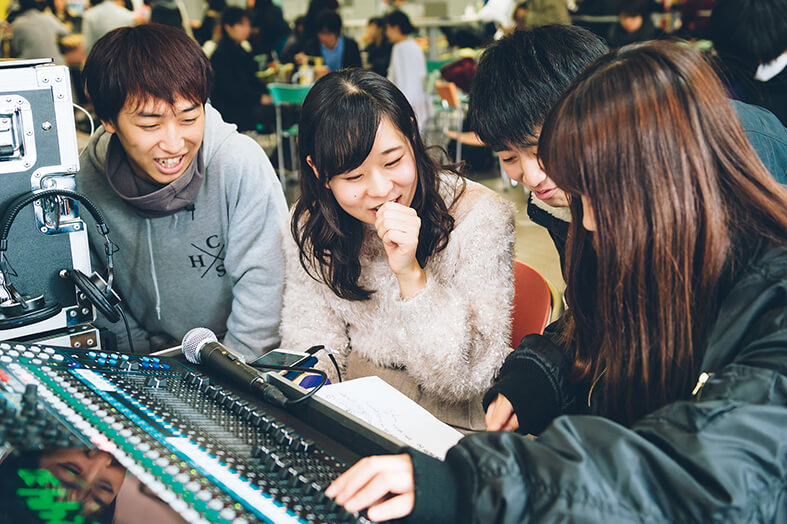
About Shobi University
- Shobi University
- About Shobi University
- Characteristics and Systems of Learning
Characteristics and Systems of Learning

Education centered around practical exercises (seminars)
Education centered around practical exercises (seminars) will be further substantiated at Shobi University. Participatory practice is continuously implemented through basic practice in the first and second years and general practice in the third and fourth years. Students acquire the capacities for business and practice through experience in society, including capabilities for presentations, teamwork, self-production, and problem-awareness/resolution.
aware of the link between learning and specialties in society
System of Learning
The curriculum is devised to support the learning experience of each student at Shobi University, in order to assist each student in advancing toward his or her goals.
Semester System
The University adopts the semester system, with the year divided into the Spring Semester (April to September) and Fall Semester (October to March). The academic credit accreditation and the course of study may be changed for each semester. The degrees of freedom in completing programs are enhanced by this system, which makes it possible for each individual to learn in a way that best suits his or her personal character, thereby facilitating efficiency in learning.
GPA
Since GPA (Grade Point Average) reflects students' overall academic performance, it is now becoming a standard form of evaluation mainly in Europe and the United States. The GPA system allows students to easily verify their learning achievements, boosts motivation to learn, and facilitates a systematic approach to academic study.
Advisor System
Full-time faculty members become advisors to individual students, providing one-on-one advice on matters such as student life, academic progress, and future choices by understanding students' course progress, their individual qualities, and future dreams. Advisors prepare course plans for students for achieving objective outcomes and pursuing their dreams based on their GPA. Advisors also provide support so that students can lead meaningful academic lives in which they can maximize their capabilities.
Flexible Learning that Crosses Over the Boundaries of Academic Faculties
The number of academic credits that must be earned for required courses and elective courses are stipulated for each faculty and department. The completion of “interfaculty free elective courses” is permitted for a part of elective courses at the University, and the academic credits earned from completing such courses are counted towards the number of academic credits required for graduation. Learning from studying in elective courses given by other faculties can offer a positive stimulus and broaden one's interests as well as knowledge.






